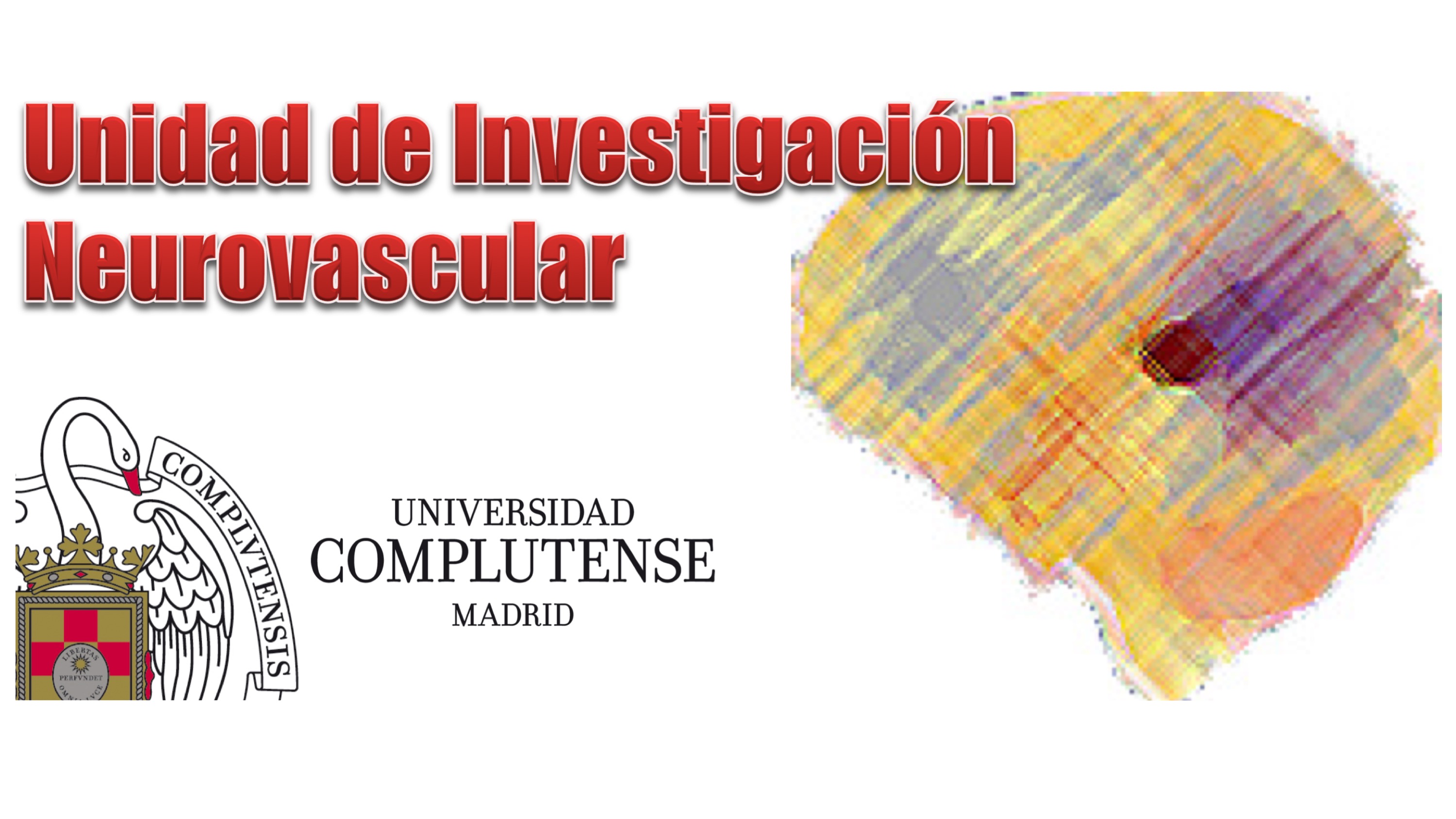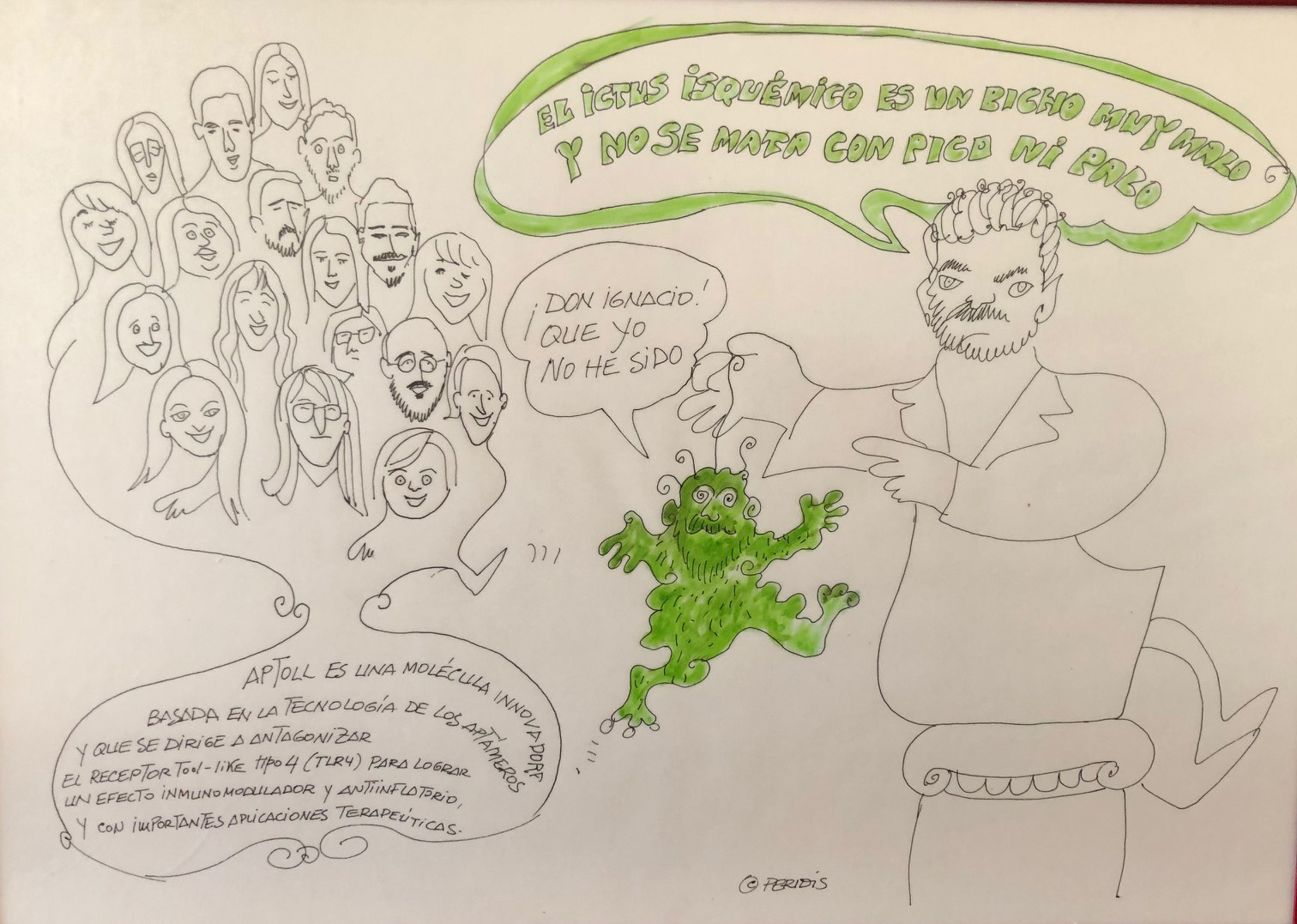


Research lines
- Role of Innate Immunity (TLR4)
- Vascular Cognitive Impairment
- Role of neutrophils on stroke
- Neurogenesis and stroke
- New targets for stroke therapy
- Hemorrhagic Transformation
- Excitotoxicity (Glutamate)
- Ischemic Tolerance and stroke
- Other research lines

Centres
Complutense Medical School. The Neurovascular Research Unit has its laboratories in Pavilion III of the Faculty of Medicine at the Complutense University of Madrid. They occupy 240 m2 of which 30% are dedicated to offices and meeting places and 70% to 6 laboratories.
Health Research Institute of Hospital Doce de Octubre (i+12). The Stroke Unit of the Neurology Service has 16 beds, 8 of which have a cardiologic monitoring. The unit has a biobank, a switchboard with specific software for hemodynamic and respiratory detection, a laboratory for vascular neurosonology and a general laboratory. The hospital is the tertiary reference centre for stroke treatment for a total of 800.000 people, and conducts over 200 mechanical thrombectomies and 125 intravenous thrombolysis a year, delivered on a regular 24/7 basis, which ensures a constant patient inclusion rate for translational studies.
The Neurovascular Pathophysiology Group is at the Spanish National Center for Cardiovascular Research (CNIC).


